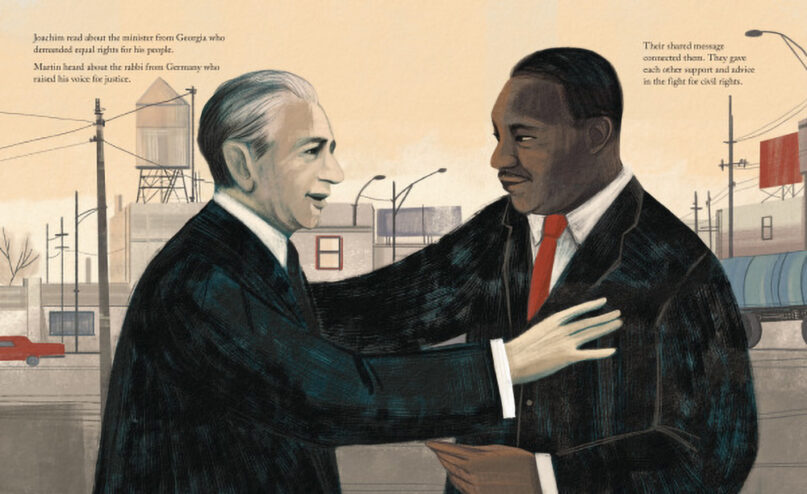
(RNS) — Let me say at the outset: Many of my colleagues are upset/concerned/dismayed about the election results. Many other of my colleagues are satisfied/happy/sanguine about the election results.
The following remarks are aimed primarily at those in Category 1, who are wondering: What should I say from the pulpit about what is happening in America?
Let’s talk about what it means to preach “politically.”
By “politically,” I do not mean a statement from the pulpit in which the preacher endorses a particular candidate who is running for office or urging people to vote for a particular party. That ship has sailed.
Besides, according to the IRS, such statements during a political campaign are inappropriate. In the IRS’ words:
All IRC section 501(c)(3) organizations, including churches and religious organizations, are absolutely prohibited from directly or indirectly participating in, or intervening in, any political campaign on behalf of (or in opposition to) any candidate for elective public office.
Prohibiting political campaign activity within these tax-exempt organization is not intended to restrict free speech on political matters for individuals. Religious leaders can speak their mind and endorse candidates as long as they aren’t doing it as an official representative of the church(i.e. church publications or at official church functions). When speaking/writing their opinions on political issues outside of the church, church leaders are urged to indicate that these are their personal viewpoints and not the views of the religious organization they represent.
So, no: No partisan political endorsements during election season.
The word “politics” comes from the Greek word “polis,” meaning the public place (which also gives us such words as police, polite and metropolitan and cosmopolitan). Translate “political” as “relevant to public and communal life,” and preaching about what is going on in the public place, in society itself, is not only a good thing to do, it might be the necessary thing to do.
This will not make everyone happy. It never has. The late Protestant writer Frederick Buechner quipped that there is no record of anyone inviting a prophet home for dinner more than once. Once you start channeling Amos or Isaiah, someone’s nose is going to get out of joint. When people say they don’t want to hear political sermons from the pulpit, it’s often a shorthand way of saying, “Please don’t say anything with which I might disagree.”
Contemporary preachers stand on the shoulders of generations of religious leaders who spoke their truths.
Yes, the prophets.

An excerpt from the book “The Rabbi and the Reverend” of Rabbi Joachim Prinz, left, and Rev. Martin Luther King, Jr. (Text copyright © 2021 by Audrey Ades. Illustration by Chiara Fedele, copyright © 2021 by Lerner Publishing Group, Inc.)
Also: Rabbi Joachim Prinz, who criticized Hitler and the Nazis from his pulpit in Germany in the 1930s. Also Rabbi Leo Baeck, the undisputed leader of the Jewish community in Germany in the 1930s and during the Holocaust. Their sermons were intended to inspire, uplift, comfort — and yes, criticize the inhuman forces that surrounded them. These preachers faced far worse adversaries — lethal adversaries, actually — than angry board members.
Also: Rabbis during the Civil Rights era in the 1960s, who preached against segregation — in some cases, at serious cost to their livelihoods, and even lives.
That would be a very short list. You are free to add your own examples and exemplars.
What about sermons aimed at American presidents? My colleagues have preached about Lyndon Johnson, because of Vietnam; Richard Nixon, because of Watergate (and also Vietnam); Ronald Reagan, because of his visit to the German military cemetery at Bitburg; Bill Clinton, whose personal failures had public implications; Barack Obama, over the Joint Comprehensive Plan of Action, which limited Iran’s capability to build a nuclear weapon; Donald Trump, for numerous reasons.
A few things that I have figured out over the years about political preaching:
It is going to be a long four years. Pace yourself. If you are part of the opposition, there will be many opportunities for outrage. Your mental, spiritual and physical health will not allow you to be perpetually apoplectic. Choose your issues carefully. My personal preference would be to limit my energies to those things that you can link to clear Jewish ideas. (To those who expect to support the new administration’s policies, preach your truth as well. Praising political figures when they do the right thing is also a Jewish value.)
Use Jewish sources. Your people come to synagogue looking for engagement with Jewish ideas and texts. Offer them that, preferably from the Torah portion of the week (and when you are preaching prophetically, include the haftarah). Let your ruminations about the public square flow from the text. Avoid texts and ideas that have become cliches, like tikkun olam, repairing the world; “justice, justice shall you pursue”; “made in God’s image”; “love the stranger.”
Actually, about that last one: “love the stranger.” Let me not make light of it — it is repeated, reportedly, 36 times in the Torah, making it the most oft-cited mitzvah.
Granted: The immigration system is broken and in need of serious repair.
If the Trump administration follows through on its draconian efforts, if Americans are compelled to turn against each other and report illegal immigrants (a sweep that will most likely include legal immigrants as well); if families are broken apart; if there are detainment camps — all possible outcomes (please read Timothy Snyder, the world’s great authority on fascism): then, yes, that biblical text will land on many ears, and its application will require — dare I say it? — civil disobedience.
If you’re going to get political, get even more pastoral. The late William Sloane Coffin made pulpit activism an art. He once mused that those preachers who lost their jobs for preaching against the Vietnam War probably weren’t visiting the sick enough. There was great wisdom in that observation. It is almost a mathematical equation: The more (even potentially) controversial your sermons are going to be, the more you have to lean in on interpersonal relations, visiting the sick, tending to the bereaved, etc.
Let them say about you: “I don’t always appreciate everything she says from the pulpit, but when my father died, she was right there …”
Give your people something to do. A Protestant colleague of mine told how he had preached a particularly vociferous sermon about some political matter. He went all Jonathan Edwards fire and brimstone on it. At coffee hour, a woman came over to him and said, “Reverend, I do hope that you feel better soon.” He realized he had simply vented his spleen, to no end. All of which means: We need to give people hope, and hope entails action. Give them a cause to donate to; somewhere to volunteer their time; a project that will capture the imagination of the community.
Young people, in particular, need and want this. It’s what they’ll remember of you. Over the years, former students — now, adults — have sought me out to remind me about the sermon I preached about one issue or another. I had forgotten those sermons. They hadn’t. You might say something that will change a young person’s life.
And not just young people: anyone. There will be that person in the pew whom you do not know very well, or at all. That person will sidle next to you over a piece of Danish, and she will tell you: “Thank you. That was precisely what I needed to hear this evening.”
Those moments are where heaven and earth touch. Treasure them. Create them. Nurture them.
And, like I said: pace yourself. If you deem yourself to be part of the opposition, you will have much to say over the next four years.
Get ready.
Listen to this podcast conversation with Rabbi Jonah Pesner, director of the Religious Action Center of Reform Judaism, as we discuss this political moment in the life of American Jewry.
As this essay was being prepared for posting, we learned of the terror murder of Rabbi Zvi Kogan in the UAE. Together with the entire Jewish people, and with good people everywhere, we mourn this tragic death, and we offer comfort to his family and friends. May the many mitzvot that he performed become an eternal light.
